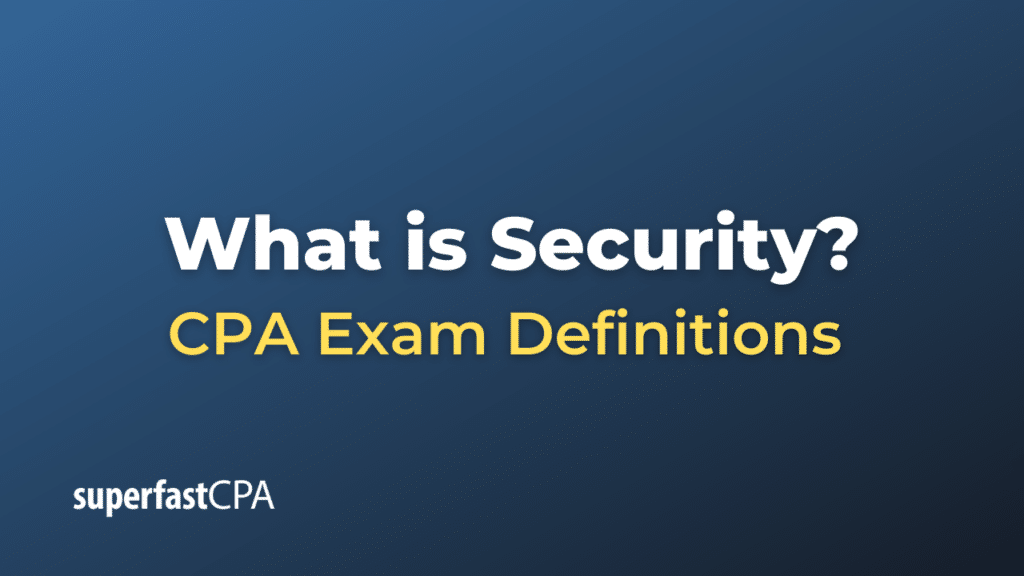Security
“Security” is a term with multiple meanings depending on the context. Here are the main interpretations:
- Financial Instruments:
- In the financial context, a security refers to a financial instrument that holds some type of monetary value. It represents an ownership position in a publicly-traded corporation (via stock), a creditor relationship with a governmental body or a corporation (represented by owning that entity’s bond), or rights to ownership as represented by an option.
- Common types of securities include stocks, bonds, debentures, options, and mutual funds.
- Protection from Harm:
- This refers to measures taken to guard against crime, attack, sabotage, espionage, etc. This could encompass a wide range of actions, from hiring security guards and installing surveillance cameras to cybersecurity measures protecting against online threats.
- Digital and Cybersecurity:
- In the context of information technology, security refers to protecting digital data from unauthorized access, theft, or damage. This involves implementing various measures to prevent data breaches, hacking, and other cyber threats. This can include firewalls, encryption, two-factor authentication, and other protective measures.
- General Safety:
- More broadly, security can simply refer to the feeling or state of being free from danger or threat. For instance, one might seek a secure job or a secure environment for one’s family.
The interpretation of “security” largely depends on the context in which it’s used. In finance, it’s about assets, in technology, it’s often about data protection, and in daily life, it might relate to personal safety or well-being.
Example of Security
An example for each of the interpretations mentioned:
- Financial Instruments:
- Example: Sarah purchased 100 shares of Apple Inc. on the stock market. Each share represents a unit of ownership in Apple, and collectively, these 100 shares are referred to as “securities.” As a holder of these securities, Sarah has a stake in the company and may receive dividends, have voting rights, and benefit from any appreciation in the stock’s value.
- Protection from Harm:
- Example: At a large music festival, organizers hire a private security company to manage crowd control and ensure the safety of attendees. Security personnel are positioned at the entrance for ticket verification and bag checks, while others patrol the festival grounds to handle any disturbances or emergencies.
- Digital and Cybersecurity:
- Example: A local bank adopts advanced cybersecurity measures to protect its customers’ sensitive data. This includes using strong encryption for online transactions, requiring two-factor authentication for online banking access, and regularly monitoring and updating their systems to defend against potential cyber threats.
- General Safety:
- Example: After a series of burglaries in the neighborhood, Mr. and Mrs. Jones decide to install a comprehensive home security system. This system includes door and window sensors, motion detectors, and surveillance cameras. Their primary goal is to provide a secure environment for their family, giving them peace of mind that their home is safe from potential intruders.
Each of these examples emphasizes the different ways the concept of “security” can manifest, whether it’s in the context of financial investments, personal safety, or digital protection.













